ScrumGenius’ standups are incredibly helpful to get quick, easy metrics on your team’s goals, blockers and tasks. But you can get even more information if you customize your standup questions to best fit your teams.
Here are some sample questions to ask your software development teams to get the most out of ScrumGenius, inspired by the real-life standups of our customers.
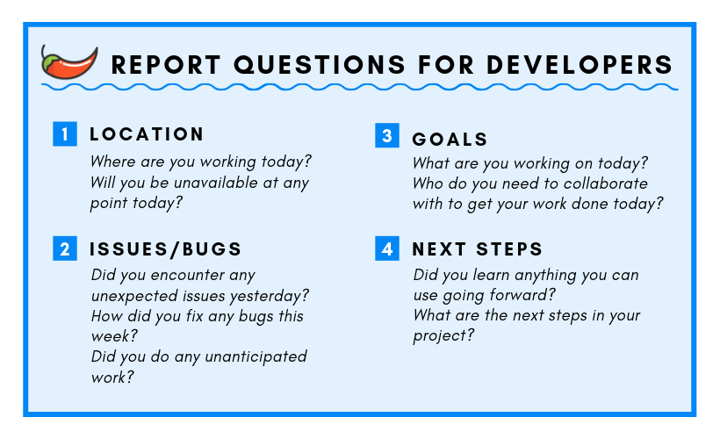
Read more to find out how these questions can help you and your team stay organized and efficient.
Location
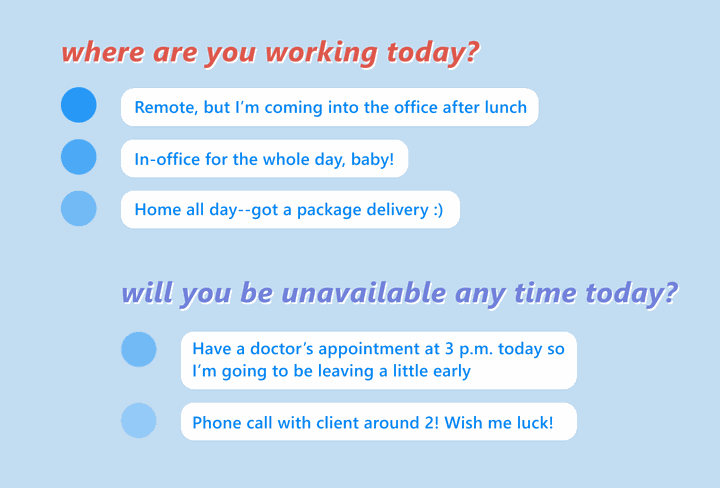
Where are you working today?
If you have remote or flexible teams, it might be a good idea to track how your employees are working, whether that be in-office, from home or remotely.
Do you anticipate having to leave at any point during the workday today?
Sometimes employees might have an appointment to go to or a quick phone call to make during work hours. This can be an easy way to let managers know when they won’t be available so time isn’t wasted trying to get a hold of someone.
Issues and Bugs
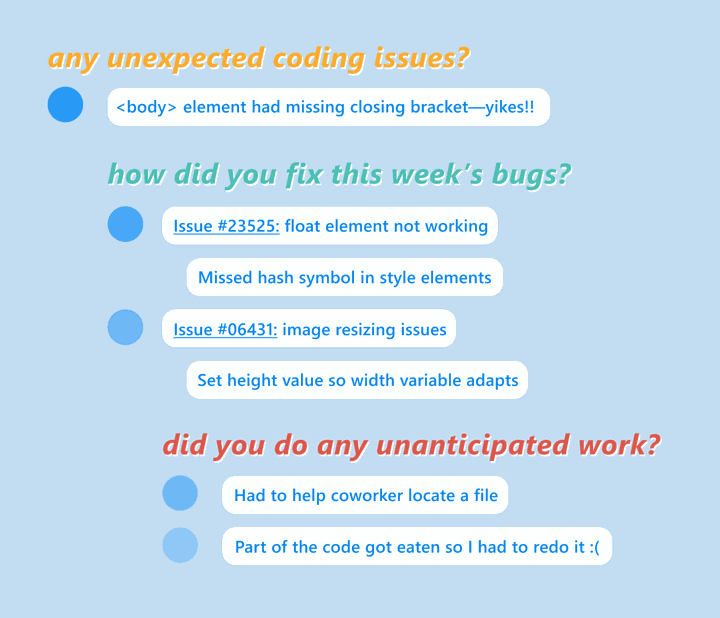
Did you encounter any unexpected coding issues yesterday?
Projects rarely happen like you want them to and code breaks often. It’s useful to keep track of these coding issues you had so you can learn from them and know what to do if you run into them again. We can’t guarantee you won’t encounter different bugs, though.
What bugs did you encounter this week and how did you fix them?
Just like the previous question, keeping a list of weekly coding issues and bugs can help you understand what went wrong so you can waste less time fixing it if it happens again. This is even more helpful if you have third-party integrations with apps like JIRA, GitHub and Azure, which automatically bring any issues and bugs into ScrumGenius for you. So all of your information is stored in the same place with even less manual work.
Did you do any unanticipated work yesterday?
Rarely do you go into a workday and do exactly what you’d planned to do. Life happens—extra additions get requested, a coworker might need help, or you might lose a piece of your work. Keeping a record of these unexpected tasks can be just as useful as keeping records of code breaks and issues.
Goals
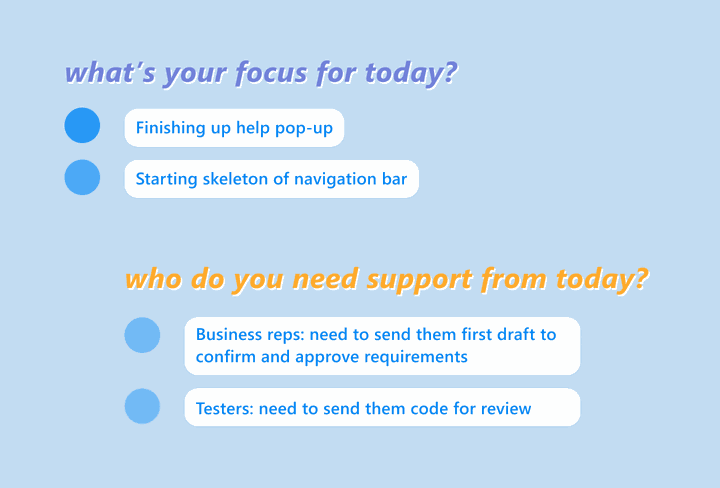
What’s your focus for today?
Lay out your tasks for the day so you have a list to go through and a record of your tasks each day. Even better, you can use this information in progress reports if upper management requests them.
Who do you need support from today?
Lay out who you need to talk to ahead of time, like managers or business analysts, so you can dive into your work easier and make sure you don’t miss important steps in your projects
Next Steps
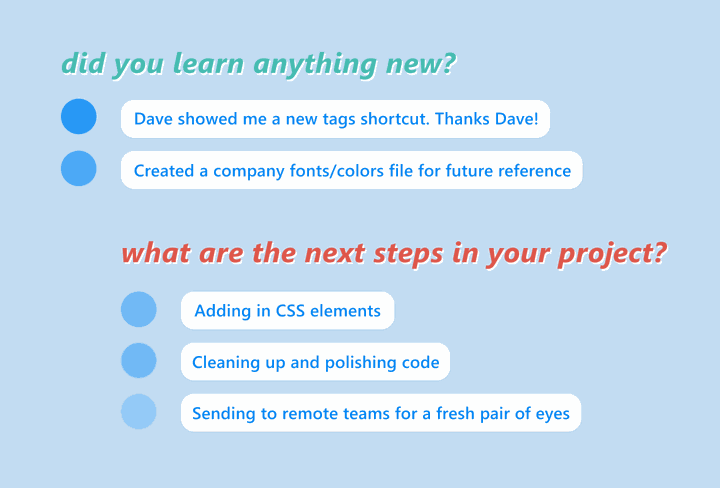
Did you learn anything you can use going forward?
Learning doesn’t stop in university. We learn new things every day, whether that be new shortcuts to get work done easier or different coding styles. Write them down so you don’t forget them.
What are the next steps in your project?
Keep an eye on the future and make sure you know what your next tasks are so you don’t make more work for yourself. This question can also be useful in case you finish your work early and want to get a head start on any upcoming tasks.
